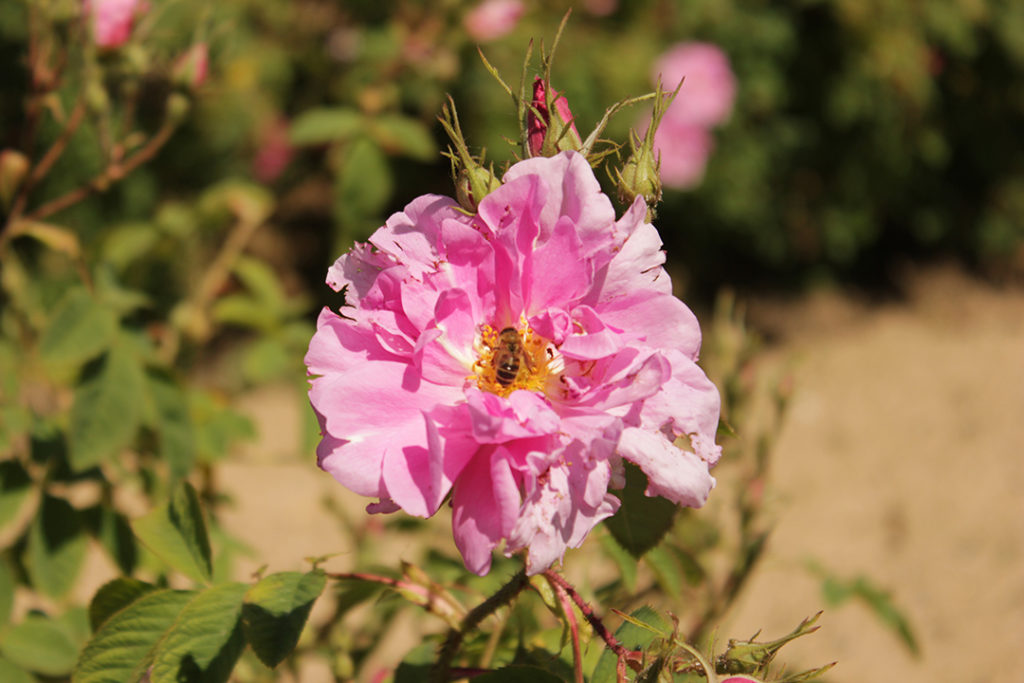
Bulgaria
Bulgarian rose
Rosa damascena

General Description / Cultural Significance
Bulgarians are known as the gardeners of Europe, and one of their favorite flowers is the Bulgarian rose. The rose has been used by royalty and people of Bulgaria in beauty and health rituals for over a thousand years. For the past 300 years, Bulgarian rose oil has been produced in central Bulgaria’s fertile Valley of Roses, in the Balkan Mountains, and it is considered the finest and most expensive of such oils for perfumery. It is also a desired ingredient for lotions and aromatherapy products.
Rose cultivation is mostly a Bulgarian family endeavor and an art passed from one generation to the next. The valley climate is perfect for the rose, which blooms from May through June. The Bulgarian rose is picked by hand early in the morning while they are still moist with dew and distilled immediately.
For hundreds of years, the rose has been used as a medicinal aid in treating the skin, boosting the nervous system, and remedying respiratory ailments. Historically, it is thought that the roses and their essential oil were introduced and traded by merchants and early nomadic Arabs between Persia, India, Asia Minor, and the Balkans.
Climate Change/Conservation Status
Climate change is an impending problem for Bulgarians. Its consequences include reduced water reserves, health effects, disturbance of agricultural production, stress on biodiversity and forests, damage to infrastructure and private property, change of tourism patterns, and many others. In 2016, the government of Bulgaria decided to take action and determine exactly how to mitigate the problems. Monitoring and reporting, as well as development of feasible energy and agricultural systems are some of the actions Bulgarians are taking. Transportation systems are set to be updated in order to cause less pollution. Newer legislation is also needed overall, in order to mitigate the impact climate change has on human health in the country. Following the EU’s commitment to act on climate change, Bulgaria now has a framework and action plan in place.
Air temperatures are warming in the Balkan countries including in the mountain areas of Bulgaria, with summer-like days increasing. The changing characteristics of the climate will affect the quality of the Bulgarian rose oil and its aroma.
Alternate Names
Damascus Rose
Damask Rose
Rose of Castile
Sources
Mr. Haralanov, Bulgarian Consulate General, and Stephan Penchev, Executive Director of United Balk American Trading. This statement can be found on the World Sensorium original website.

